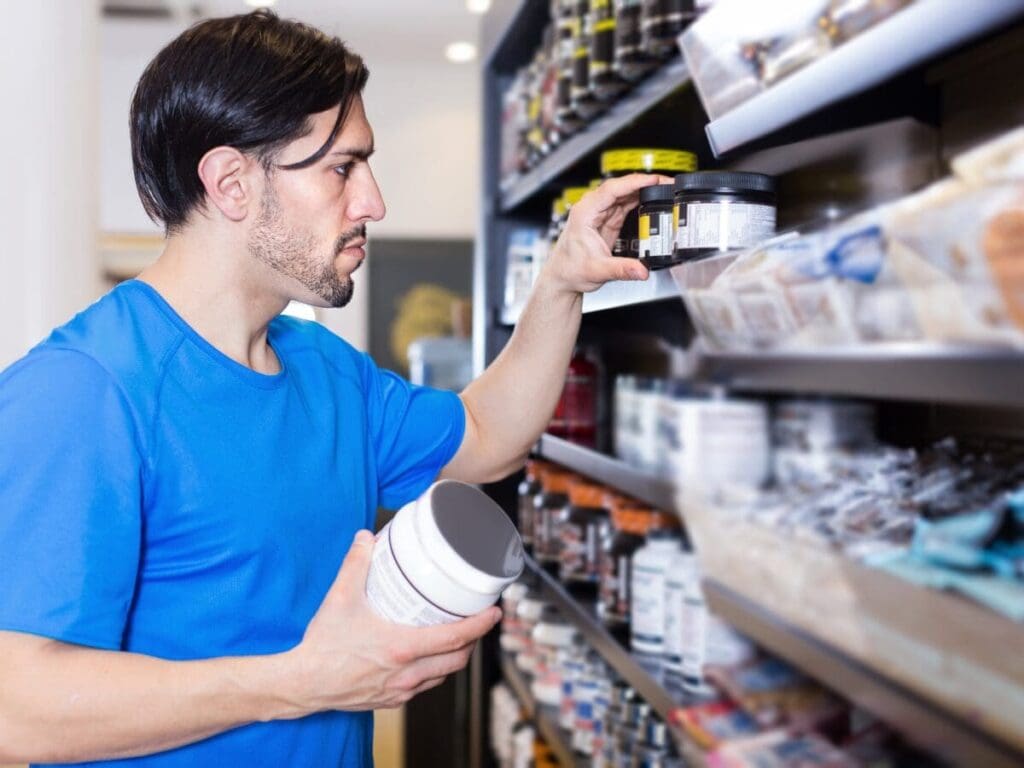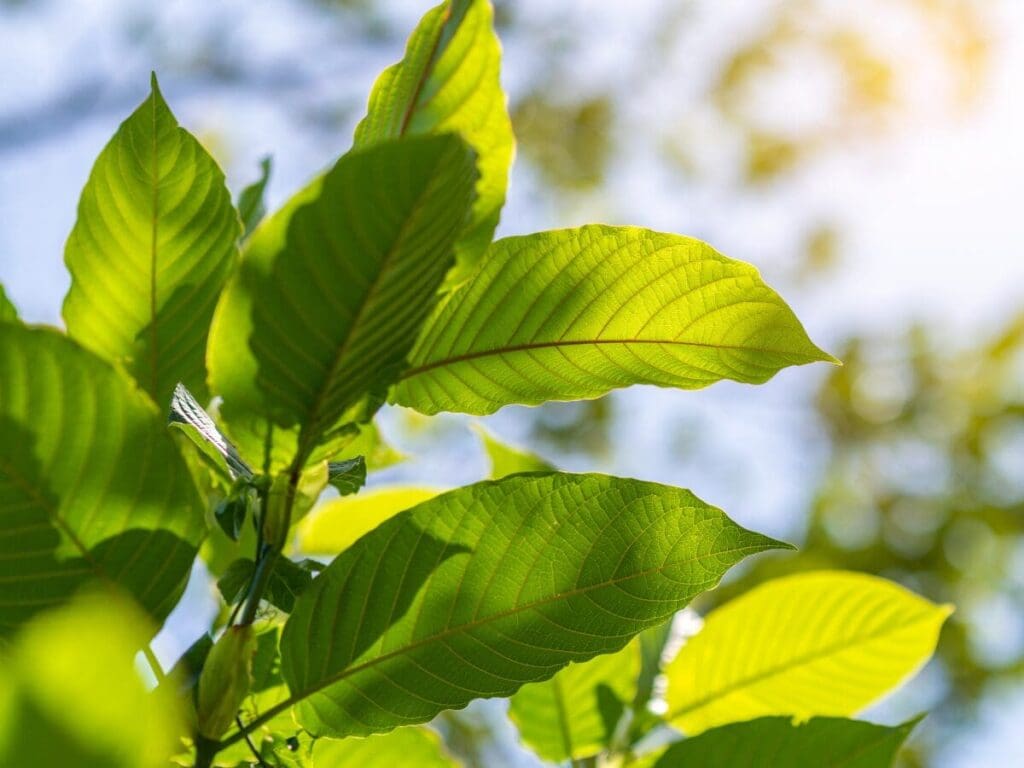Key Takeaways:
- Kratom Benefits: Kratom offers versatile effects ranging from pain relief and mood enhancement to increased energy and opioid withdrawal support.
- Kava Benefits: Kava is highly effective for reducing anxiety, improving sleep quality, and promoting muscle relaxation.
- Choosing the Right Option: Choosing between kratom and kava depends on your specific wellness goals, health considerations, and personal preferences.
Happy Hemp’s expertise in natural wellness allows us to provide you with reliable information on the various options available, including the popular choices of kratom and kava. When it comes to natural wellness products, kratom and kava have gained popularity for their unique effects and benefits. Both derived from plants, these substances offer different experiences and potential health advantages. In this article, we will explore what kratom and kava are, look into their effects and benefits, and compare them to help you make an informed choice. Whether you’re seeking relaxation, pain relief, or an alternative to traditional medications, understanding the differences between kratom and kava is essential for making the best decision for your personal wellness journey.
Understanding Kratom
Kratom (Mitragyna speciosa) is a tropical tree native to Southeast Asia, particularly found in countries like Thailand, Indonesia, Malaysia, and Papua New Guinea. The leaves of the kratom tree have been used for centuries by indigenous people for their medicinal properties and as a natural stimulant. Kratom leaves can be chewed, dried and brewed into a tea, or processed into a powder or capsule form.
Kratom’s primary active compounds are mitragynine and 7-hydroxymitragynine, which interact with the body’s opioid receptors to produce a range of effects. Depending on the dosage and strain, kratom can provide stimulating effects similar to caffeine at lower doses and sedative, pain-relieving effects at higher doses. It has gained attention in the West for its potential to help manage pain, boost energy, improve mood, and assist with opioid withdrawal symptoms.
Happy Hemp’s Club 13 Kratom Seltzer combines the traditional benefits of Kratom with a refreshing twist. This invigorating seltzer is available in Black Cherry and Blood Orange flavors, perfect for enhancing energy, focus, and overall wellness. Try Club 13 Kratom Seltzer today and experience a delightful way to boost your day!
Overview Of Kava
Kava (Piper methysticum) is a plant native to the South Pacific islands, where it has been traditionally used for centuries in social and ceremonial contexts. The roots of the kava plant are ground into a paste and mixed with water to create a beverage that has relaxing and sedative properties. Kava is known for its ability to promote a sense of calm and well-being without impairing mental clarity.
The active compounds in kava are called kavalactones, which interact with the brain’s neurotransmitters, particularly GABA (gamma-aminobutyric acid). This interaction helps to reduce anxiety, ease muscle tension, and promote relaxation. Kava is often used as a natural remedy for anxiety, stress, and insomnia, making it a popular choice for those looking to unwind and enhance their mood.
Kratom: Effects And Benefits
Kratom offers a variety of effects and benefits, which can vary depending on the strain and dosage. Here are some of the primary effects and benefits associated with kratom:
Pain Relief
Kratom is well-known for its analgesic properties. The alkaloids mitragynine and 7-hydroxymitragynine interact with the body’s opioid receptors, providing significant pain relief. Many users turn to kratom as a natural alternative to prescription pain medications, particularly for conditions like arthritis, fibromyalgia, and chronic back pain. Its pain-relieving effects can last for several hours, making it a valuable option for those seeking sustained relief.
Energy And Focus
At lower doses, kratom acts as a stimulant, increasing energy levels and enhancing focus and concentration. This stimulating effect can be particularly beneficial for individuals who experience fatigue or lack of motivation. Students, professionals, and athletes often use kratom to improve productivity and mental clarity, making it easier to complete tasks and achieve their goals. The energy boost provided by kratom is typically smooth and sustained, avoiding the jitteriness associated with caffeine.
Mood Enhancement
Kratom has mood-lifting properties, which can help alleviate symptoms of depression and anxiety. The plant’s alkaloids can enhance the release of serotonin and dopamine, neurotransmitters associated with feelings of happiness and well-being. Many users report an improved sense of well-being and reduced stress after using kratom, which can be particularly helpful during challenging times or when dealing with emotional distress. Regular use in moderate amounts can contribute to a more positive outlook on life.
Opioid Withdrawal Support
Kratom has gained attention for its potential to assist with opioid withdrawal symptoms. It can help reduce cravings and ease withdrawal effects, making it a useful tool for those looking to overcome opioid dependence. The plant’s interaction with opioid receptors can provide relief from the physical and psychological symptoms of withdrawal, such as pain, anxiety, and irritability. This supportive role has made kratom a valuable aid for individuals undergoing addiction recovery.
Relaxation And Sedation
At higher doses, kratom has sedative effects, promoting relaxation and helping to improve sleep quality. This makes it beneficial for individuals dealing with insomnia, stress, or anxiety-related sleep disturbances. The calming effects of kratom can help users unwind after a long day, easing muscle tension and promoting a restful night’s sleep. Its ability to induce relaxation without causing excessive grogginess makes it a popular choice for evening use.

Kava: Effects And Benefits
Kava is renowned for its calming and relaxing properties, which make it a popular choice for stress relief and mental well-being. Here are some of the primary effects and benefits associated with kava:
Anxiety Reduction
Kava is widely used for its anxiolytic (anxiety-reducing) effects. The kavalactones in kava interact with the brain’s neurotransmitters, particularly GABA (gamma-aminobutyric acid), which plays a key role in reducing anxiety. Regular use of kava can help individuals manage stress and anxiety more effectively, providing a sense of calm and relaxation without impairing mental clarity. This makes it a valuable tool for those dealing with generalized anxiety disorder or situational stress.
Improved Sleep Quality
Kava’s sedative properties make it an excellent natural remedy for insomnia and other sleep disorders. By promoting relaxation and reducing anxiety, kava helps users fall asleep more easily and enjoy a deeper, more restful sleep. Unlike some prescription sleep aids, kava does not typically cause grogginess the next day, allowing individuals to wake up feeling refreshed and rejuvenated. Its ability to enhance sleep quality is particularly beneficial for those who struggle with racing thoughts at bedtime.
Muscle Relaxation
The relaxing effects of kava extend to the muscles, making it effective for easing muscle tension and spasms. This can be especially helpful for individuals who experience muscle pain or stiffness due to stress, overexertion, or medical conditions like fibromyalgia. Athletes and those with physically demanding jobs often use kava to soothe sore muscles and promote faster recovery after strenuous activities. The muscle-relaxing properties of kava contribute to an overall sense of physical relaxation and well-being.
Mood Enhancement
In addition to reducing anxiety, kava has mood-lifting effects that can help combat feelings of sadness and depression. The calming influence of kava on the mind and body can lead to improved mood and a more positive outlook on life. Many users report feeling happier and more content after consuming kava, which can be particularly beneficial during periods of emotional distress. Its ability to enhance mood without causing euphoria or dependence makes kava a safe and natural option for emotional support.
Social Relaxation
Kava is often consumed in social settings to promote relaxation and camaraderie. In many Pacific Island cultures, kava is used in ceremonies and gatherings to foster a sense of community and connection. The calming effects of kava can help reduce social anxiety and make social interactions more enjoyable and comfortable. For those who struggle with social anxiety or shyness, kava can be a helpful aid in building confidence and improving social experiences.
General Safety Tips
To ensure safe and responsible use of kratom and kava, consider the following general safety tips:
- Consult a Healthcare Professional: Before starting kratom or kava, especially if you have pre-existing health conditions or are taking other medications, consult with a healthcare provider to ensure it is safe for you.
- Start with Low Doses: Begin with a low dose to gauge your body’s reaction and gradually increase if needed, while monitoring for any adverse effects.
- Use High-Quality Products: Ensure you are using high-quality, pure kratom or kava from reputable sources to reduce the risk of contamination and ensure potency.
- Avoid Mixing with Other Substances: Mixing kratom or kava with alcohol, prescription medications, or other substances can increase the risk of adverse effects and should be avoided.
Following these general safety tips can help you enjoy the benefits of these natural remedies while protecting your well-being.
How To Choose Between Kratom And Kava
Choosing between kratom and kava depends on your specific wellness goals, personal preferences, and how your body reacts to each substance. Here are some factors to consider when deciding which one might be the best fit for you:
Purpose and Desired Effects
- Kratom: If you are seeking pain relief, increased energy, or support for opioid withdrawal symptoms, kratom may be the better choice. Its stimulating effects at lower doses can help boost productivity and focus, while higher doses can provide significant pain relief and relaxation.
- Kava: If your primary goal is to reduce anxiety, improve sleep quality, or relax your muscles, kava is likely the more suitable option. Its calming and sedative properties make it ideal for stress relief and promoting a restful night’s sleep without the risk of dependency.
Side Effect Tolerance
- Kratom: Consider your tolerance for potential side effects such as nausea, constipation, and the risk of dependency. If you are prone to gastrointestinal issues or concerned about the possibility of addiction, you may want to use kratom with caution or explore other alternatives.
- Kava: If you are particularly concerned about liver health, you should use kava in moderation and monitor for any signs of liver toxicity. Kava is generally well-tolerated, but it can cause drowsiness and dizziness, which should be taken into account if you need to remain alert.
Dosage and Form
- Kratom: Kratom is available in various forms, including powder, capsules, and extracts. The dosage can be adjusted easily depending on the desired effects. If you prefer a more customizable approach to dosage, kratom offers flexibility.
- Kava: Kava is typically consumed as a beverage made from the root powder, but it is also available in capsules and extracts. If you enjoy traditional preparation methods and social rituals, kava beverages might be appealing. For convenience, capsules and extracts are also an option.
Legal Considerations
- Kratom: Check the legal status of kratom in your area, as it varies widely. Some regions have restrictions or bans on kratom, which could impact your ability to obtain and use it.
- Kava: Kava is generally more widely accepted and legally available in many parts of the world. However, it’s still important to verify its legal status in your specific location to ensure compliance with local regulations.
Long-Term Use and Health Impact
- Kratom: Consider the potential for long-term health impacts, such as liver damage and dependency. If you plan to use kratom regularly, it’s essential to monitor your health and consult with a healthcare provider.
- Kava: While kava is generally considered safe for short-term use, long-term use requires caution due to the risk of liver toxicity. Regular health check-ups and responsible usage are key to minimizing risks.
Personal Experience and Preferences
- Kratom: Some people may respond better to kratom’s effects, finding it more effective for their specific needs. Personal experience with kratom can vary, so it’s important to start with a low dose and observe how your body reacts.
- Kava: Others may prefer the gentle relaxation and anxiety-reducing effects of kava, especially if they prioritize mental well-being and social relaxation. As with kratom, start with a small amount to determine your tolerance and effectiveness.
Ultimately, the choice between kratom and kava depends on your individual goals, health considerations, and personal preferences. Both substances offer unique benefits that can support your wellness journey, and understanding these factors can help you make an informed decision.

Final Thoughts
Kratom and kava are two powerful natural substances that offer distinct benefits and effects, making them popular choices for those seeking alternative wellness solutions. Understanding the differences between kratom and kava, including their origins, active compounds, and potential side effects, can help you choose the right option for your needs.
Kratom is well-suited for those looking for pain relief, increased energy, and mood enhancement. Its versatility in providing both stimulating and sedative effects makes it a valuable tool for managing various conditions, from chronic pain to opioid withdrawal.
Kava, on the other hand, is ideal for individuals seeking relaxation, anxiety reduction, and improved sleep quality. Its calming properties make it a natural remedy for stress and insomnia, while its muscle-relaxing effects can soothe physical tension.
Whether you choose kratom or kava, ensuring you use high-quality, pure products is crucial for maximizing benefits and minimizing risks. Always consult with a healthcare professional before incorporating these substances into your routine, especially if you have existing health conditions or are taking other medications.
By carefully considering your wellness goals and understanding the unique properties of kratom and kava, you can make a choice that aligns with your needs and supports your journey toward better health and well-being.
Read also:
- What Is Kratom Used For?
- How Long Does Kratom Stay In Your System? Duration And Detection
- What Does Kratom Feel Like? Exploring The Effects And Experiences
Frequently Asked Questions About Kratom Vs. Kava
Can you take kratom and kava together?
While some people do mix kratom and kava, it’s generally not recommended due to the potential for compounded sedative effects and increased risk of side effects. Always consult with a healthcare provider before combining any substances.
How long do the effects of kratom and kava last?
Kratom effects typically last 2-5 hours, depending on the dose and strain. Kava effects can last 2-3 hours, providing relaxation and anxiety relief without lingering sedation.
How should I prepare kava for consumption?
Kava is traditionally prepared by grinding the root into a powder and mixing it with water, then straining the mixture to produce a drink. It is also available in instant powders, capsules, and extracts for convenience.
Are there any dietary restrictions when taking kratom or kava?
There are no specific dietary restrictions, but it is advisable to avoid alcohol and other substances that strain the liver when using kratom or kava. Staying hydrated and consuming these substances with food can help minimize gastrointestinal discomfort.
What are the best kratom strains for energy and focus?
White vein kratom strains, such as White Maeng Da and White Borneo, are known for their stimulating effects and can help increase energy and focus.
How does kava taste, and are there ways to improve the flavor?
Kava has a distinct, earthy taste that some find unpleasant. Mixing kava with flavored beverages, such as coconut water or fruit juice, can improve its taste.
Sources:
- Boyer, E. W., Babu, K. M., Adkins, J. E., McCurdy, C. R., & Halpern, J. H. (2008). Self‐treatment of opioid withdrawal using kratom (Mitragynia speciosa korth). Addiction, 103(6), 1048-1050.
- Prozialeck, W. C., Jivan, J. K., & Andurkar, S. V. (2012). Pharmacology of kratom: an emerging botanical agent with stimulant, analgesic and opioid-like effects. Journal of Osteopathic Medicine, 112(12), 792-799.
- Grundmann, O., Hendrickson, R. G., & Greenberg, M. I. (2023). Kratom: history, pharmacology, current user trends, adverse health effects and potential benefits. Disease-a-Month, 69(6), 101442.
- Hartley, C., Bulloch, M., & Penzak, S. R. (2022). Clinical pharmacology of the dietary supplement kratom (Mitragyna speciosa). The Journal of Clinical Pharmacology, 62(5), 577-593.







